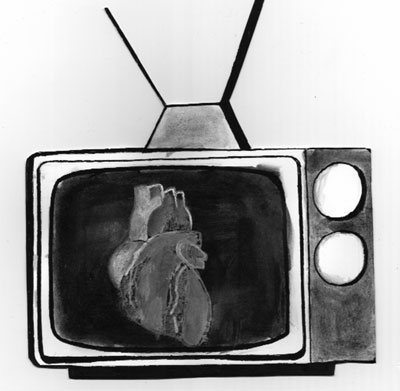All Nonfiction
- Bullying
- Books
- Academic
- Author Interviews
- Celebrity interviews
- College Articles
- College Essays
- Educator of the Year
- Heroes
- Interviews
- Memoir
- Personal Experience
- Sports
- Travel & Culture
All Opinions
- Bullying
- Current Events / Politics
- Discrimination
- Drugs / Alcohol / Smoking
- Entertainment / Celebrities
- Environment
- Love / Relationships
- Movies / Music / TV
- Pop Culture / Trends
- School / College
- Social Issues / Civics
- Spirituality / Religion
- Sports / Hobbies
All Hot Topics
- Bullying
- Community Service
- Environment
- Health
- Letters to the Editor
- Pride & Prejudice
- What Matters
- Back
Summer Guide
- Program Links
- Program Reviews
- Back
College Guide
- College Links
- College Reviews
- College Essays
- College Articles
- Back
Coronary Heart Disease
Heart disease is the number one cause of death in the United States. Heart disease refers to a few different diseases, the most common one being coronary heart disease. Coronary heart disease, also known as coronary artery disease, is the most common of diseases pertaining to the heart, affecting the lives of more than fifteen million Americans a year. Although there is no cure to the disease, treatment can help and so can having a slight change of heart about your daily living style. Simple things such as, taking the stairs, or cutting back on fast food, can lower your risk of heart disease and lengthen your lifespan. If a couple extra minutes of taking the stairs can give you a couple more years of life, why not take it?
The first step to fighting against heart disease is understanding what it is and what affects it can have on the body. Coronary heart disease is caused by a buildup of plaque in the coronary artery, which supplies the heart with oxygen rich blood. Plaque, according to scripps.edu, is a combination of fat, cholesterol, and other substances, that can build up on the inside of the artery and harden, causing restriction of blood flow to the heart. Results of this may cause chest pains, shortness of breath, heart attack, or other symptoms. The hardened plaque may also break apart at times causing blood clots in the artery. A large enough blood clot will restrict blood flow to the heart resulting in a heart attack and other symptoms like angina. Angina, according to the National Heart, Lung, and Blood institute, “is chest pain or discomfort. It may feel like pressure or squeezing in your chest. The pain can also occur in your shoulders, arms, neck, jaw, or back. Angina pain may also feel like indigestion.” Heart disease is also known primarily as a man’s disease, but that is not the case. Heart disease is the number one killer of both men and women in the United States. Everyone is at risk to heart disease, however, some are more at risk than others. It all depends on your age, weight, physical activity, eating habits, and family history.
Understanding the risk factors of heart disease, and what heightens your chances of having it, is the next step to beating it. There are some risk factors that raise the risk bar a little higher that cannot be modified. Things such as age and family history. The risk for coronary heart disease starts rising at the age of forty-five for men and fifty-five for women. If you have a family member who has suffered from heart disease, your chances are automatically heightened. Aside from the non-modifiable factors are the modifiable ones. Ones such as: eating habits, exercise, weight, smoking, diabetes, high blood pressure, and high cholesterol levels. These are factors that heighten your risk to heart disease even more. With these factors raising the risk, it's no wonder why coronary heart disease is the number one killer in the United States.
The final step to beating heart disease is actually taking the initiative to fight against it. Things as simple as not stopping by McDonald's on your way home once a week or even taking the stairs instead of the elevator can lower your risk of coronary heart disease. Also, keeping track of your blood pressure and cholesterol levels can help, too high of blood pressure or cholesterol levels will heighten your chances. Ways to help keep them balanced is by, according to the professionals at heart.org; losing weight, start by incorporating small exercise into your daily routine, park at the end of the parking lot or use your lunch break to take a small walk. Once you are ready for it, take time to burn some more calories and do some calorie burning exercises. Eat foods that have less saturated fat and more vegetables, fruits, and whole grains. It is the simple things in life that will keep you alive.
Now that you know what coronary heart disease is, what causes it, and how to stop it, you can prevent it. Coronary heart disease does not care who you are and, if not properly taken care of, will sneak up on anyone. That is why it is important to watch out for it, and why it is also important to go ahead and take the effort to lower your chances of the disease. Talk to your doctor if you experience any of the symptoms. So go ahead, start a new healthy diet, take the stairs, walk a little bit, don't eat fast food, and, in the long run, it will pay off.

Similar Articles
JOIN THE DISCUSSION
This article has 0 comments.
